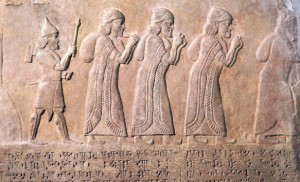Sins of the Church
A few days ago I asked, “Are the sins of the church more grievous for those who believe in God or those who do not?” Now I want to take the time to unpack that a bit more.
Regardless of who you are or where you come from, it is not hard to find things to criticize the church for: There is the clergy sexual abuse cases and financial scandals. You have the stories of people like Jimmy Swaggart and Ted Haggard. There is corruption and abuse of power at every level. Countless Christian churches and organizations are known more for their hate and bigotry than their love. We have pastors who wear Rolexes while people starve. And all of this happens in the name of God.
So who should find this more appalling? Is this type of behavior more troublesome for Christians or for those who do not beleive?
On one hand, those who have experienced the radical love and grace of Jesus should find these acts particularly disturbing because they tarnish the face of Christianity. If you have found your life woven into the tapestry of the Christian story then stains on the fabric reflect and affect you. Only those who fully grasp the message can realize just how contradictory these corporate sins are.
Yet on the other hand, if you reject the story of God and Christianity, the inconsistencies are even more glaring. There are been countless acts of violence and hate committed in the name of God. How much worse are those acts if God does not even exist. It is one thing to bomb an abortion clinic if you are doing it because you think you are purifying society in God’s name. But, if there is no God then these actions are completely lacking justification.
It is one thing for pastors to live extravagant lives built upon people’s tithes (literally money given to God) if they think it is justified by scripture. But, if God does not exist then these people are diverting people’s charity without furthering any noble cause.
I don’t have the answer to these questions, but I can say this. As I have allowed myself to wrestle with the notion that there may not be an all powerful God who is active in creation, I find my displeasure with the church exponentially increasing. If God does not exist then humanity has spent an inordinate amount of time and resources on petty and self-seeking things when those same resources could have been leveraged to bettering all of creation.
Just think if we had built hospitals and schools instead of sanctuaries and steeples. What if we had sent people to heal the sick instead of convert the heathens? Imagine a world where instead of paying pastors we paid to provide clean drinking water and basic health care to all people.
Only those inside the church can understand the true message of the church and realize the depth of grace, love and forgiveness this institution is called to. But at the same time, we need to hear the voice of those on the outside as they lament what could have been.

